|
Artistic direction and system installation / direction : Thomas J. Jelinek
Music and sound architecture / composition: Jorge Sánchez-Chiong
CAST
Text, dramaturgy of discourse / performance………….….....……....Marian Kaiser
Sampling music performance, cello, and vocals…….......MELA Marie Spaemann
Sound-art and programming………………….………..………….........…..Pit Noack
Photographic body installation…………………..…………...Christina Hartl-Prager
Performer, actor, mathematics………………..…………..…………...Max Hoffmann
Conceptual installation, economics……………..…………………….Gerald Nestler
Relic Hunter …..…..……................................……………..…..…….Lucie Strecker
Soundscape, guitar…………………..………………….……….…..…..Florian Kmet
Physical installation and game programming……........Thomas Wagensommerer
Video, performance…………………..…..……………….………Louise Linsenbolz
Multi-Percussionist, sound-scape creator……..…...……David Christopher Panzl
Performance ........................................................................................ Palma Biro
Video conception ................…………………..……..……….….……….Peter Koger
live-eye camera ...........................................................................Georg Eisnecker
Sound engineering…………………..………….…..…….……………Florian Bogner
Bio-cycle engineering .......................................................................Roman Harrer
production…………………..……..………..………......Roma Janus / ROCONCEPT
Guest experts:
Hanada Al Refai…….......... Mathematician, political activist, from Syria, in Vienna as refugee
Margarete Jahrmann...... Artist and 'pataphysicienne, Prof. Game Design, Kunst Univ. Zürich
Stefan Glasauer.............................. Neuroscientist, Prof. Ludwig-Maximilian Univ. Münichen
Armin Medosch……….......... Artist, media expert, journalist, and Prof. at Belgrade University
of Media and Arts
further team and special cooperations
Ulli Kühn .............................. Wikipedia-picture machine
Friedrich Hausen …............. philosopher and writer, textsupport for questionairs
and further guests
PRODUCTION: NOMAD.theatre in coproduction with MUSIKTHEATERTAGEN WIEN
and:
Werk X • Tanzquartier Wien • ZENTRALWERK Dresden • MEDIA OPERA Wien
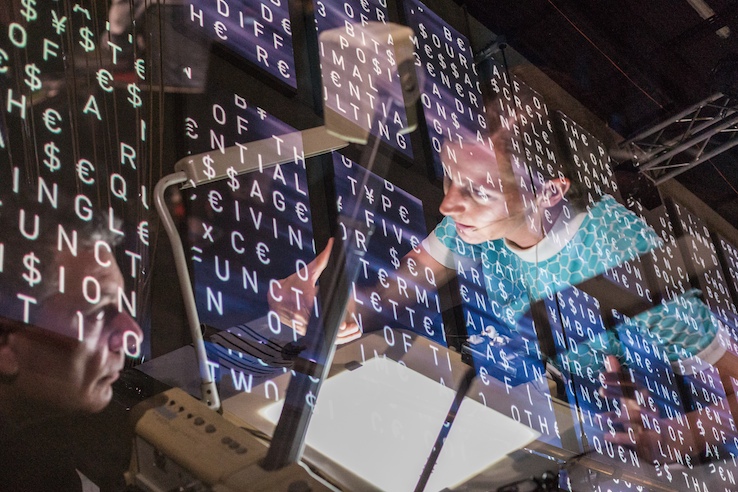
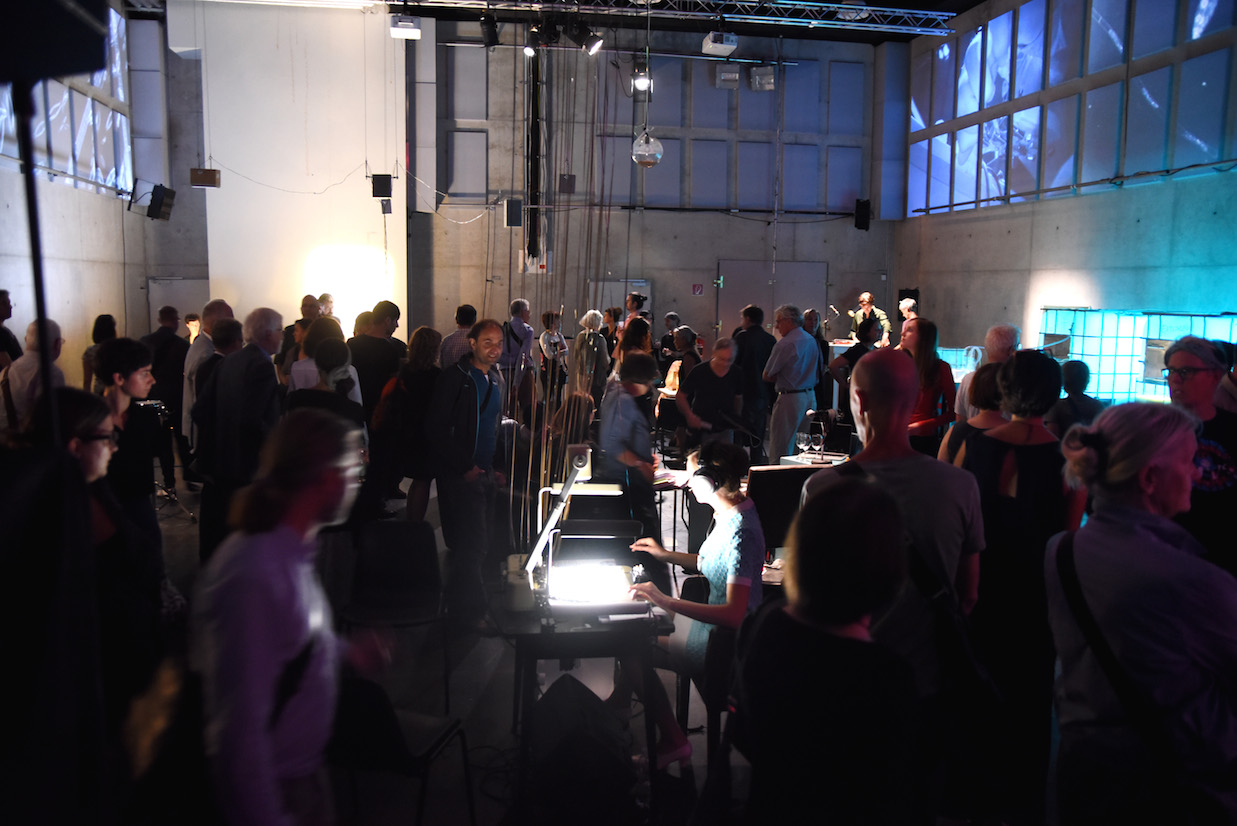
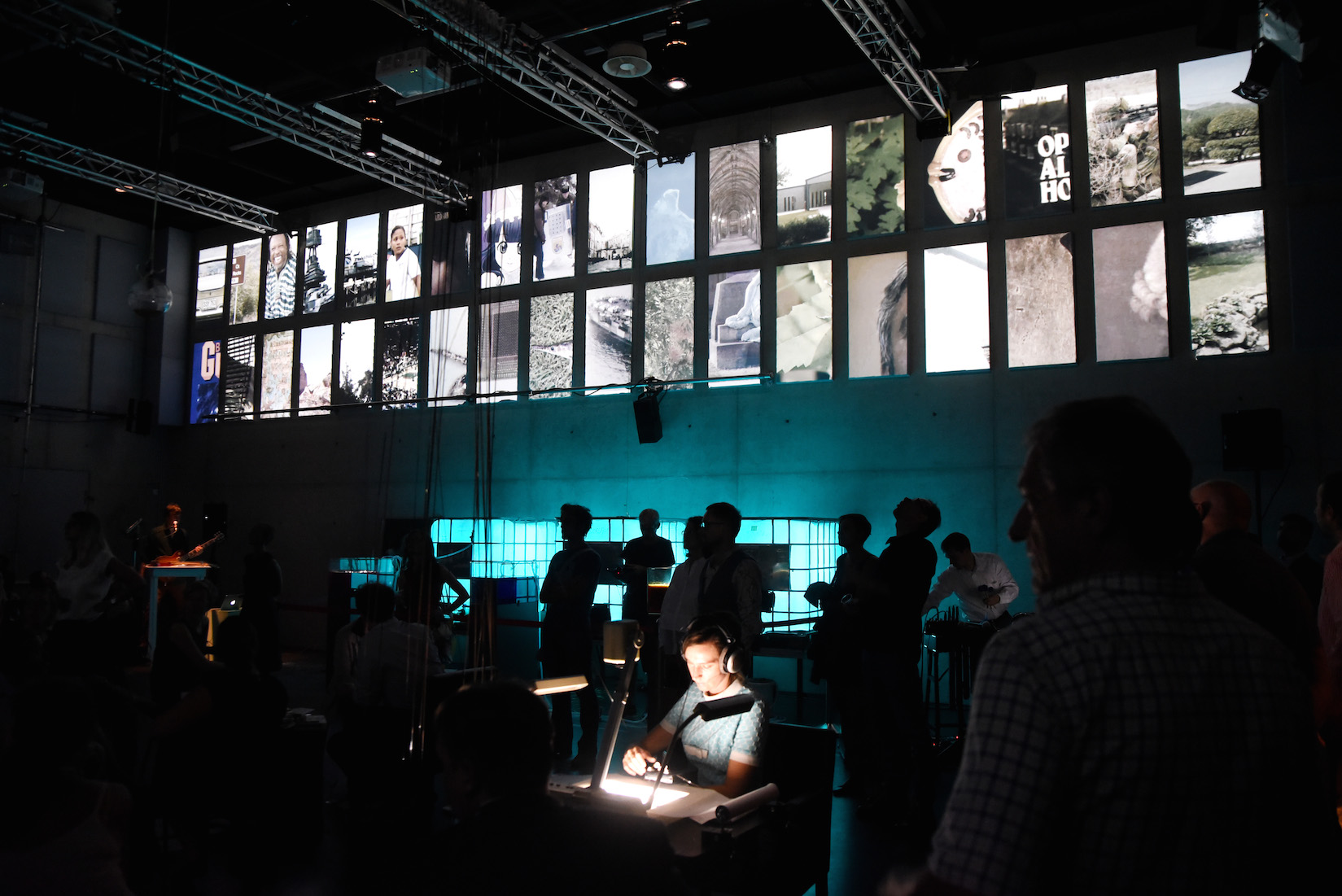
|
|
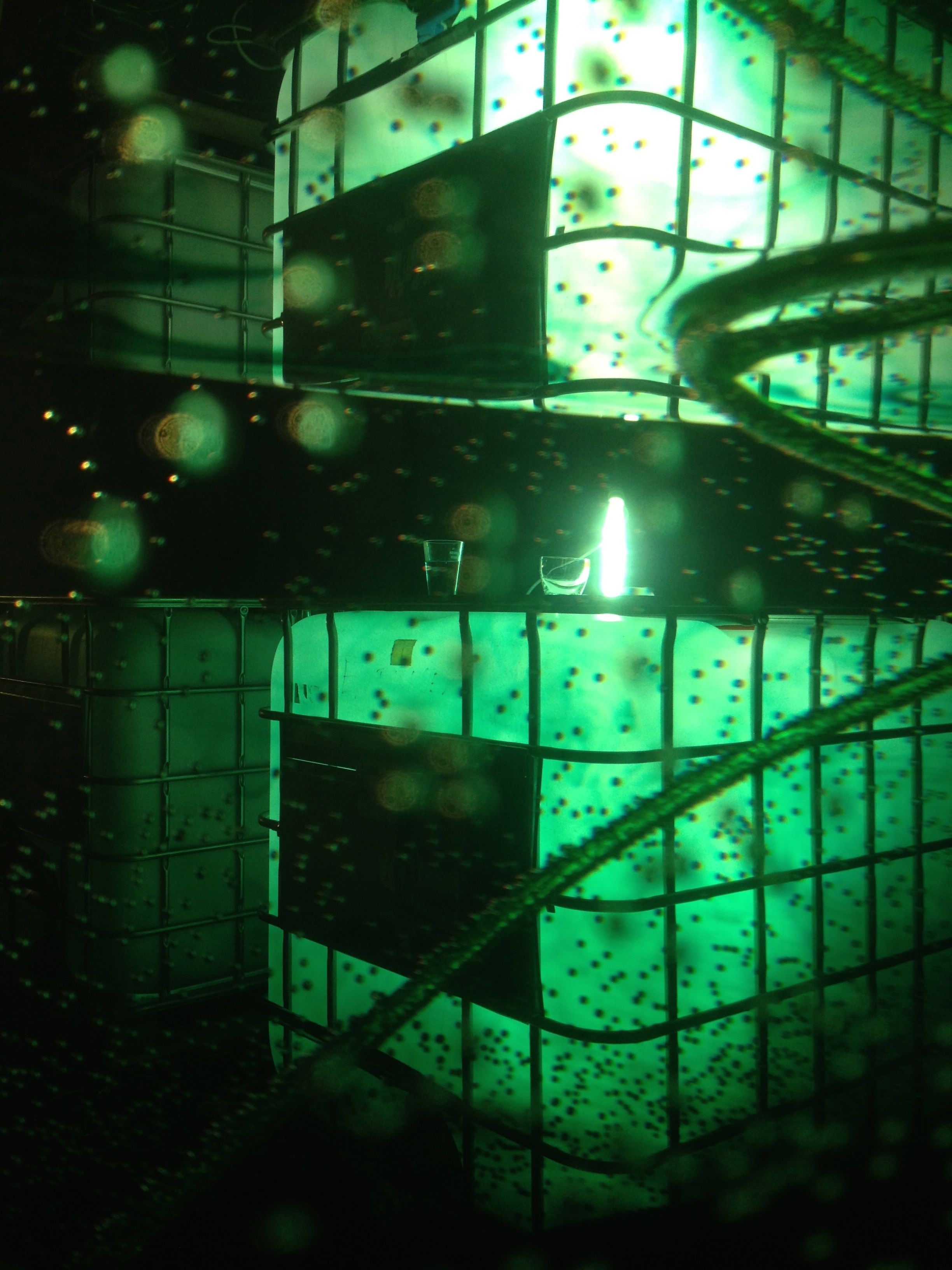
derstandard:
„Theaudience,guestsaredippedintofloodsof–individuallyconveyed–information.Butstillwealsofindcontemplativereflection: OperaofEntropyisa Gesamtkunstwerk, free to be shaped by the recipients, a movable show-jumping course, from science to political protesting, between complex tonal sound and noisy music and excentric visuality and video.“
Wiener Zeitung:
„The claim of Thomas J. Jelinek on contemporary Opera – namely the entanglement of all disposable art forms and technologies – is virtuosely redeemd by the Opera of Entropy.“
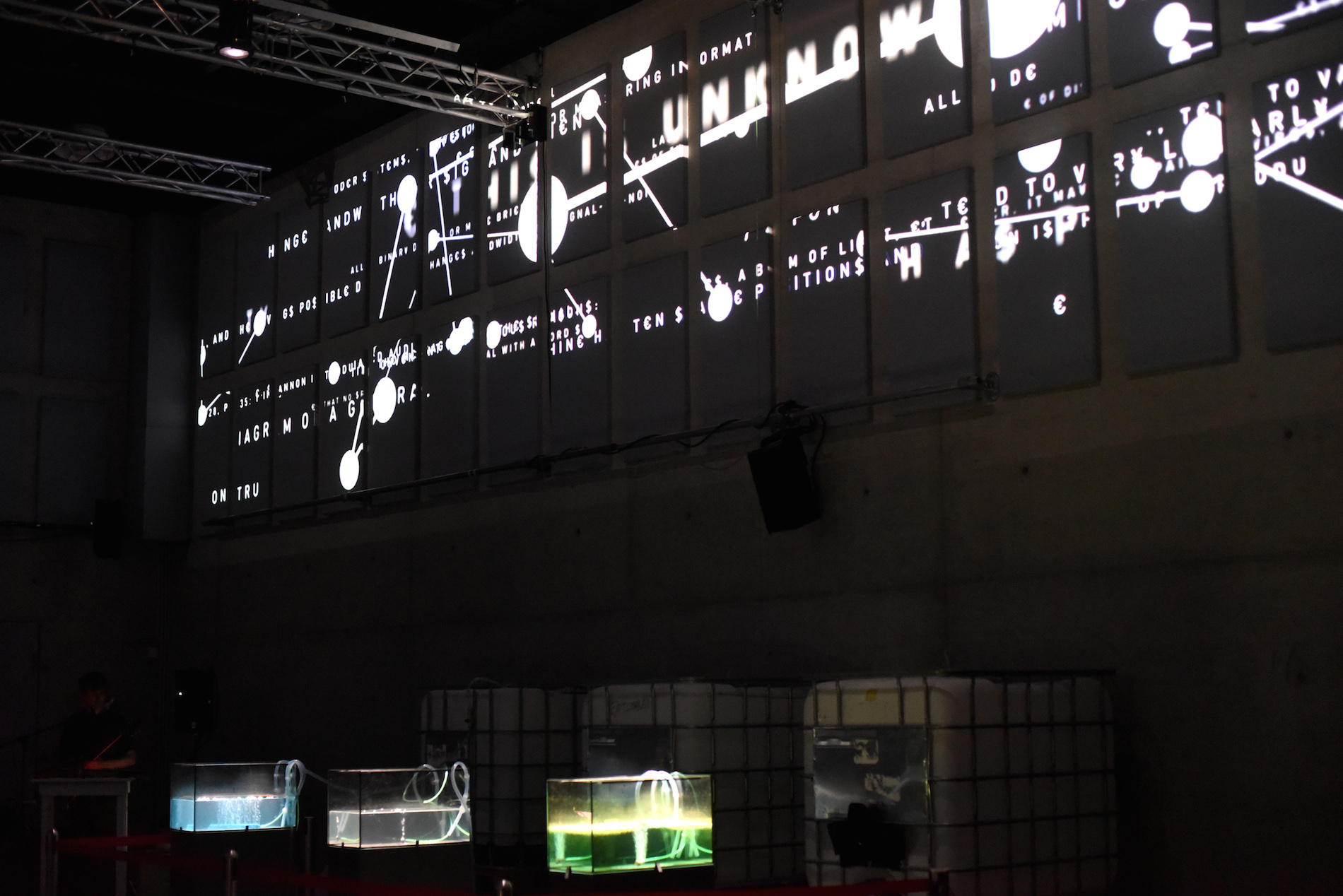
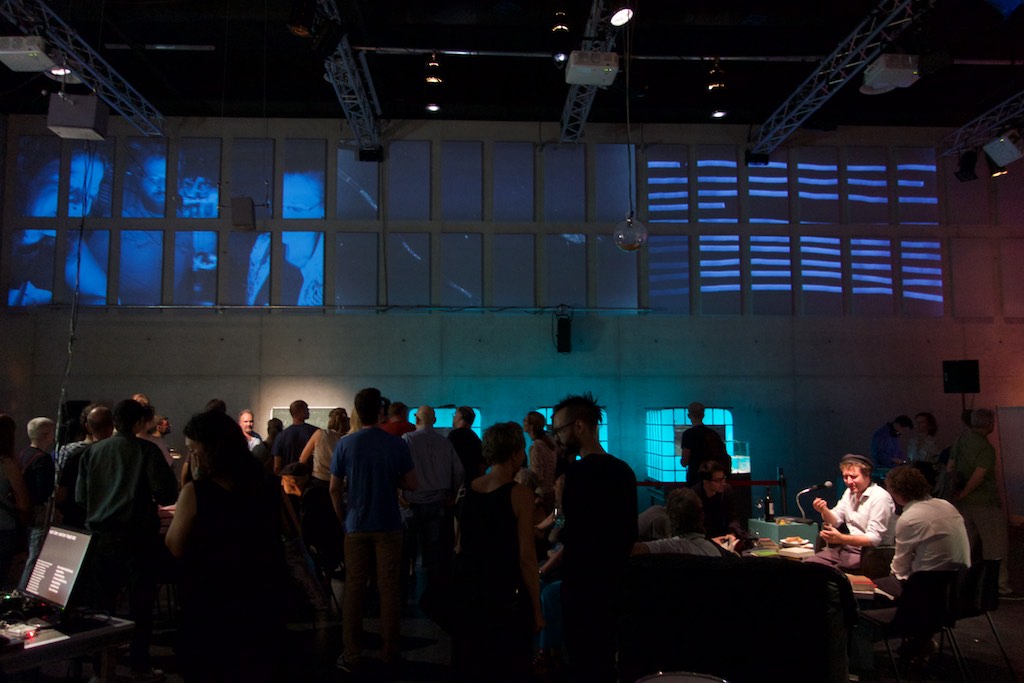
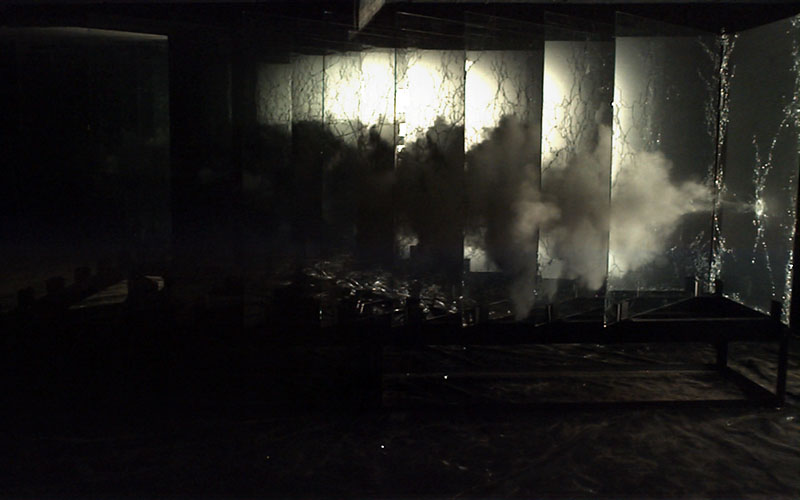
|
|
ENTROPY is an art project to survey the contemporary dynamics of being and the human construction of reality. It is performed in temporary collaborative communities and induces public discourse in art laboratories throughout Europe.
ENTROPY is also a performative sound-space-installation in the form of a radically experimental opera.
ENTROPY is not a love song.
S = k log W
Once in a great while an idea changes the course of history.
The Entropy Law—or the Second Law of Thermodynamics—is such an idea.
— Jeremy Rifkin
My mother was right:
When you've got nothing left, all you can do is get into silk underwear and start reading Proust.
— Jane Birkin
Entropy is a fundamental physical law in our universe. The term derives from the Greek tropē, meaning transformation, and en, meaning inside. Everything is constantly transformed inside it. Its formal definition, i.e., the measure of a system’s disorder, was coined by the physicist Rudolph Clausius in 1865, for what till then he called the “transformational content of the body”. Entropy derives from the Second Law of Thermodynamics, stating that the disorder of any cyclic process will either increase or remain the same. That a scrambled egg cannot be unscrambled. Or, more accurately, that it is extremely unlikely that an egg would ever get descrambled. In statistical mechanics, as stated by Ludwig Boltzmann’s H-theorem, the energy distribution of molecules can only increase, but not decrease. In the 20th century, with its grotesque political occurrences and technological escalations, the term seeped from science into other disciplines — from physics to mathematics and into communication theory. The technical and information theoretical interpretation of entropy, famously provided by Claude Shannon, seems to particularly suit our times. In Shannon’s terms, entropy is the measure for the possibility of communication in a given system, and, from the perspective of this mathematical theory of communication, it makes no difference whether it is a machine or a person communicating in that system. Communication is technology, language, a system. Entropy is the term for the amount of potential conditions or signals within that system. Entropy is often associated with disaggregation, collapse, decay, and disorder. Though this is far from a just association for the term. Perhaps this negative notion fits well with present global dynamics, with its social and political corrosion, multiplying wars, increasing refugee streams, growing economic crisis, and environmental concerns. However, entropy is much more, it is an inventible result of thermodynamics, and thus also produces everything we see around us. Entropy is the core topic of this transdisciplinary art project. Its scientific definitions are taken as a starting point and central metaphor to discuss fundamental social, cultural, and technological processes in the present world. The starting point for this project, which was launched in 2015, is a theoretical and practical analysis of our construction of reality. Though experts and scientists are involved, the discourse, which manifests itself in artistic settings, performs with the human species, us, as protagonists, in the context of the present transforming reality — our entropy. The artistic method is emphasizing the absurdity of human activities, as reference to the pataphysics of Alfred Jarry. The urgency of this examination lies in the interpretational dominance of the term in our current discourse. Entropy, in our information age, is having a renaissance.

|
|

ZENTRALWERK

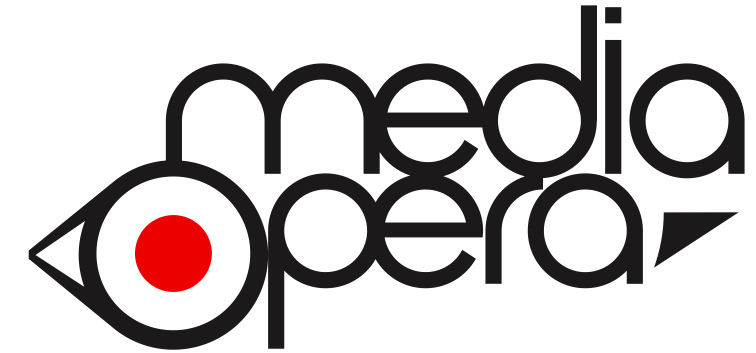

|
|
The Opera of Entropy - The absurdity of the entropy crisis, the traces of the H-theorem, is an operatic synthesis of entropic effects on the present. It is performed in theatre venues, or open art space, without seats. Its duration is 100 minutes.
Thomas J. Jelinek (artistic director) and Jorge Sanchez-Chiong (sound-artist and composer) developed a score, which aims to translate the dynamics of physics, communication, media technology, social processes, and economics into a libretto of the Second Law of Thermodynamics. It extracts sound, visual imprint, and social elements as means of performance. The composing and creation of the score gets closer to architecture or programming, following the parameters of a computer simulated game, with increasing levels of complexity along its timeline. The music composition and soundscape is created parallel with the text, content, and physical installation landscape. The installations’ structure receives a physical actualization by using and arranging all its information, the experimental processes, and the records of its discourse.
|
|
11-04-2015
1sr ENTROPY - LAB im ZENTRALWERK Dresden
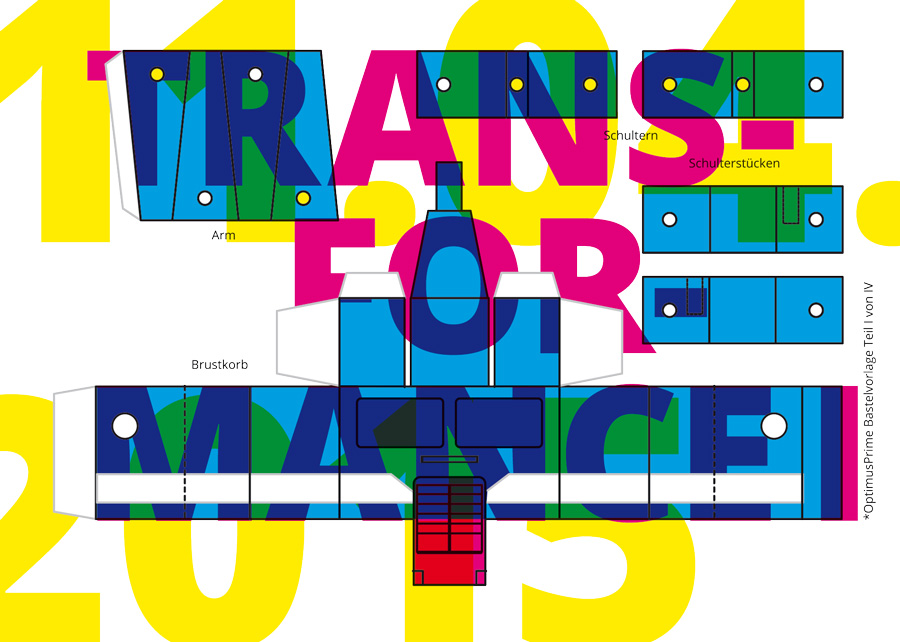
MIT/with / kollaborative AkteurInnen:
Anja Kempe, Anna Till, Barbara Lubich, Cizzy Gonzales,
Conny Crumbach, Friedrich Hausen, Marian Kaiser, Käthe Kruse,
Ka Dietze, Mathias Kuhnt, Pit Noack, ray vibration,
Teresa Hackel-Fröbel, Prof. Wolfgang Lessing u.a.
Bei Thermodynamik denke ich an den schönen
Kittler-Kopfschüttler: 'Fin de siècle? Das ist doch
Ausbuchstabierung der Thermodynamik.'
Und, professionell deformiert, selbstredend an die
Umkehrung thermodynamischer Prozesse,
wenn eben um 1900 plötzlich technische Medien denselben ein zeitkritisches Schnippchen
schlagen und (insbesondere in der Akustik) Ereignisse in ihrer Zeitlichkeit selbst speicherbar,
verarbeitbar und übertragbar werden lassen - die Worte der Leute und die Geräusche der
Welt zu allerseitigem Entsetzen Welt plötzlich munt
er vor- und zurücklaufen lassen.
Diesseits von Zeitachsenmanipulationen treibt mich der Wahnsinn um. Die mich und sich
dieser Tage bis ins gelegentlich Unerträgliche zieh
ende Dissertation zu Kultur und
Wahnsinn, zur Kolonialisierung und Globalisierung europäischer Klassifiaktionen des
Wahnsinns um 1900, an der ich immer wieder und immer noch schreibe, verfolgt unter
anderem, wie das Laborwissen aus den psychophysisch
en Apparate hinaus in die Klinik und
die Patienten hinein gelangt. Dabei erscheint die (
später zur 'Schizophrenie umfomulierte)
'Dementia Praecox' des deutschen Begründers der klinischen Psychiatrie Emil Kraepelin als
thermodynamische Angelegenheit. Kein Wunder, wird Kraepelin doch nicht nicht als
Psychiater ausgebildet, sondern von Wilhelm Wundt in Leipziger und Heidelberger
Laboratorien. Deren Experimentalwissen schleppt er in die Psychiatrie und ihren Wahnsinn
ein - gemeinsam mit einem Begriff von Arbeit und Vorstellungen von Systemen, die Wundt
wiederum seinem Lehrer Helmholtz abgelauscht hat. Und der hat in seinem Aufsatz
Ueber
die Erhaltung der Kraft unabhängig von Mayer immerhin den Energieerhaltungssatz
aufgestellt ("ARBEIT, WIR MÜSSEN ARBEIT ENTGEGENSET
ZEN!").
Am Ende geht alle Wissenschaft in Biopolitik und Kolonialismus auf. Wahnsinn ist Entropie. Arbeit das Einzige und Letzte, was wir ihm entgegenzusetzen haben.
|
|
|